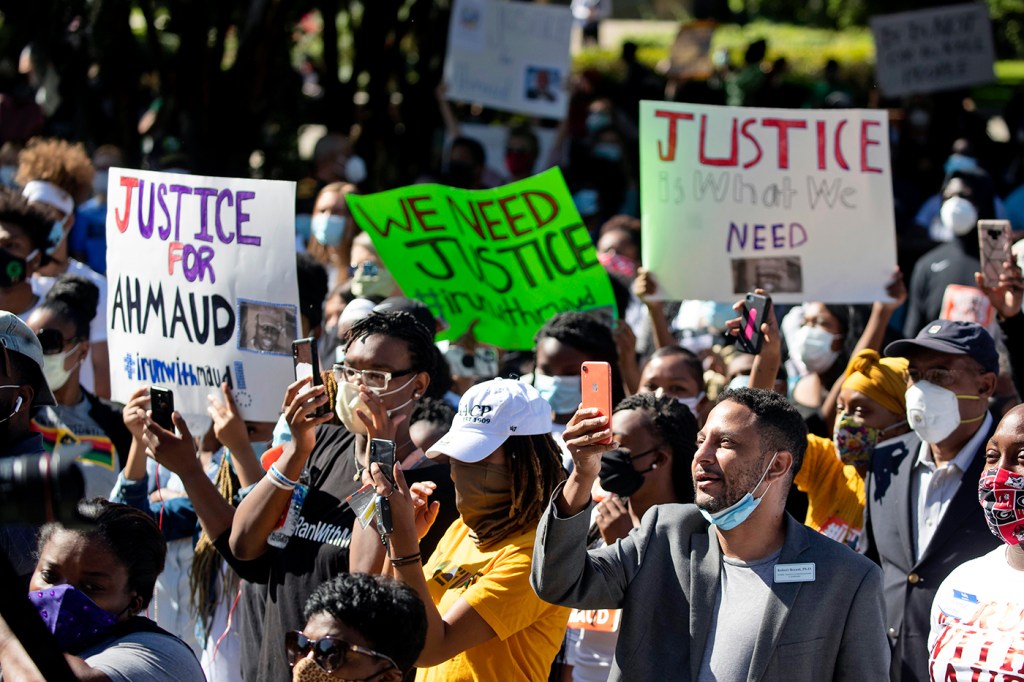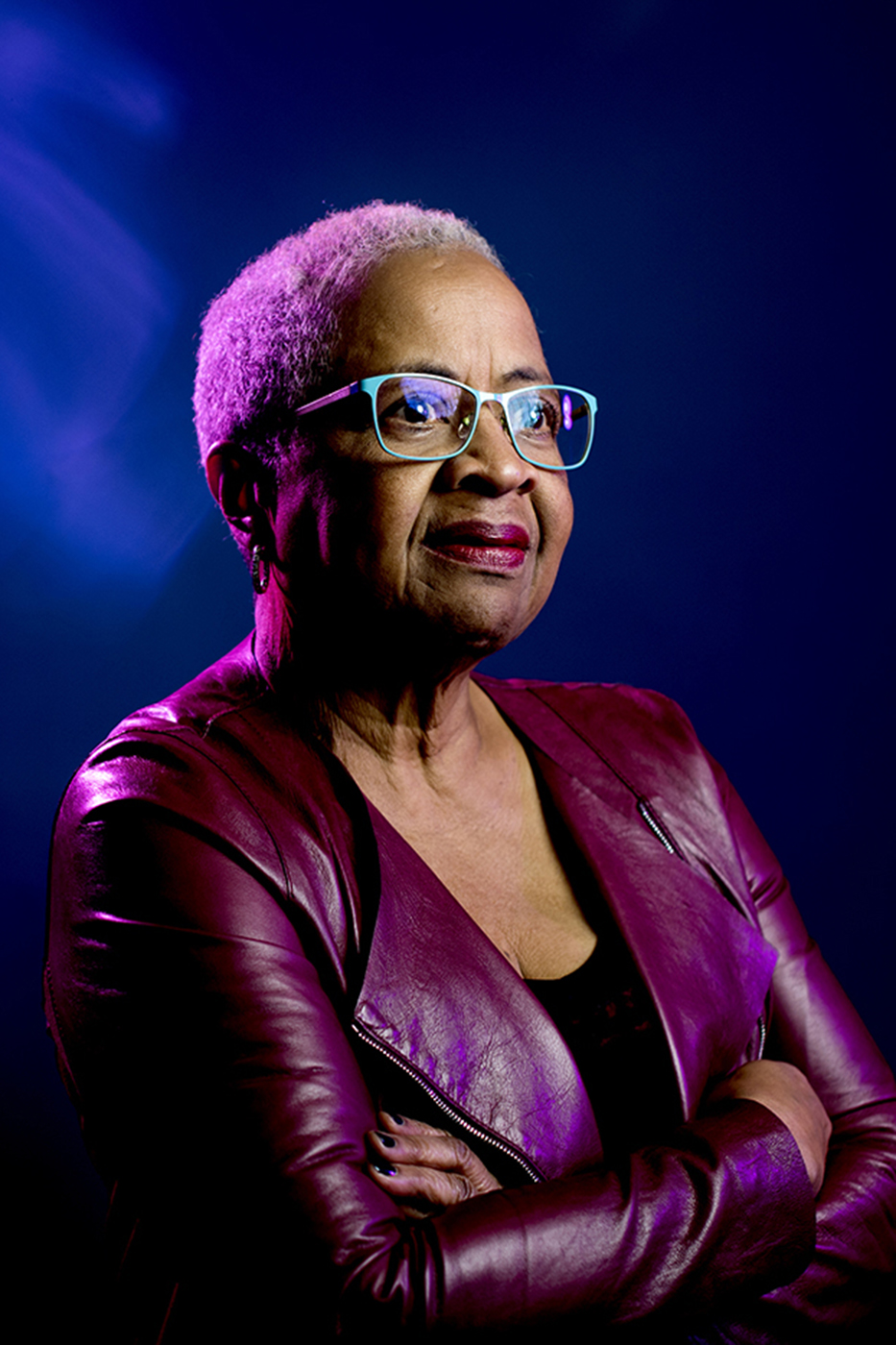Ahmaud Arbery was killed in Georgia. Should the case be tried as a hate crime?

On Feb. 23, a 25-year old Black man was shot and left to die in the middle of a street in a part of Georgia with a history of lynchings.
Ahmaud Arbery was jogging along a road near Brunswick, Georgia when he was confronted by Gregory McMichael (a former police officer and retired investigator) and his son, Travis McMichael.

Margaret Burnham is the director of the Civil Rights and Restorative Justice Project and university distinguished professor of law at Northeastern University School of Law. Photo by Matthew Modoono/Northeastern University
The men, who are white, pursued him in a truck after spotting him running in their neighborhood. The McMichaels later said that they were attempting to make a citizen’s arrest, believing Arbery to have been responsible for burglaries in the area. They said that they shot him in self-defense.
Atlanta Mayor Keisha Lance Bottoms has compared Arbery’s shooting to lynchings in the Jim Crow-era South.
Margaret Burnham, university distinguished professor of law at Northeastern, says the perpetrators in the case should be brought to justice accordingly.
Earlier this year, the United States House of Representatives passed a bill that labels conspiracies to commit hate crimes as lynchings, and will make them a federal crime if it is signed into law.
“The white perpetrators in this case got the benefit of the doubt based on their skin color,” says Burnham, who founded and directs the Civil Rights and Restorative Justice Project at Northeastern’s School of Law, through which she and her students investigate acts of racial violence that took place in the South from 1930 to 1970. “That’s the only reason this took so long. Inasmuch as Congress has passed a lynching bill, I can’t imagine why there wasn’t a prompt and productive federal investigation of this case by the Trump White House. It appears to me that this has all the hallmarks of a lynching.”
No arrests were made, or charges filed, until two months later, when a video of the shooting recorded by a neighbor of the McMichaels was publicized on YouTube. It immediately went viral and garnered attention from celebrities, prompting the proliferation of the hashtag #JusticeForAhmaud and discussions on the role of racial bias in the criminal justice system. The McMichaels have been charged with murder and aggravated assault. On Thursday, the man who recorded the shooting, William “Roddie” Bryan Jr., was also arrested on suspicion of murder.
Burnham argues that Glynn County, where the shooting took place, has a long history of racist behavior and policies toward its Black residents. Today, the county’s residents still live under residential apartheid, she says.
“In our project, the Civil Rights and Restorative Justice Project, we have several cases from outright murders and lynchings of African American men in that county,” she says. “There were several old-fashioned lynchings that occurred in the 19th and early 20th centuries in Glynn County. One of our students investigated a case in 1947 in which eight Black men were shot down in cold blood in a prison institution in Glynn County.”
In most of the cases the project investigated, the perpetrators were never charged with a crime. But today’s world of ubiquitous cell phones made such an outcome much less likely.
Jonathan Kahn, a professor of law and biology at Northeastern who studies race and justice, posits that the case reinforces the power of cell phone cameras in bringing to light the killings of unarmed Black men. As difficult and upsetting as it might be to watch for some, the footage documents an incidence of injustice that needs to be addressed, he says.

Jonathan Kahn is a professor of law and biology, with joint appointments in the College of Science and the Northeastern University School of Law. Photo by Ruby Wallau/Northeastern University
“It brings to light the fact that in the absence of such starkly clear evidence, these sorts of incidents would never be taken seriously, and justice would never be pursued,” says Kahn.
The video aside, says Kahn, the local law enforcement in Glynn County apparently missed an opportunity to conduct even an elementary investigation into the case, choosing instead to take at face value the McMichaels’ justification for the shooting.
“Fortunately, it comes back in some ways to the power of social media to break through in some of these cases,” Kahn says, alluding to the online outcry in response to the video.
The professors say it will be noteworthy to watch how the case proceeds amid a news coverage cycle that is dominated by the COVID-19 pandemic. Three prosecutors have thus far recused themselves from the case, citing a conflict of interest, while a third district attorney announced last week that he would present the evidence to a grand jury once physical-distancing restrictions are lifted.
“I expect that it will move with dispatch,” Burnham says. “I don’t think the demonstrations are going to slow down. I think they will continue, and rightfully so. This is utterly despicable, shameful, and also fully reflective of the vicious regularity of racial violence perpetrated against African-Americans to this very day.”
Kahn says he is hopeful that no further conflicts of interest arise in the case, and that the case proceeds to the criminal trial phase. The ensuing steps will be significant, he says, to see which charges are ultimately brought against the McMichaels, whether they’ll be offered a plea bargain, and how the selection of the jury plays out.
While a superior court judge has been appointed to preside over the case, the pandemic has forced the suspension of both jury trial and grand jury sessions through June 12. So far, no court hearings have been scheduled, and a trial isn’t expected until sometime next year.
“In this time of the COVID-19 pandemic, it is important to remember that there is also a long-standing epidemic of racist violence against young Black men, which makes one wonder how much is actually coming to light?” Kahn says. “It would seem to indicate in these sorts of situations that they only come to light if it’s documented in this clear and not quite, but relatively incontrovertible way.”
For media inquiries, please contact media@northeastern.edu.





